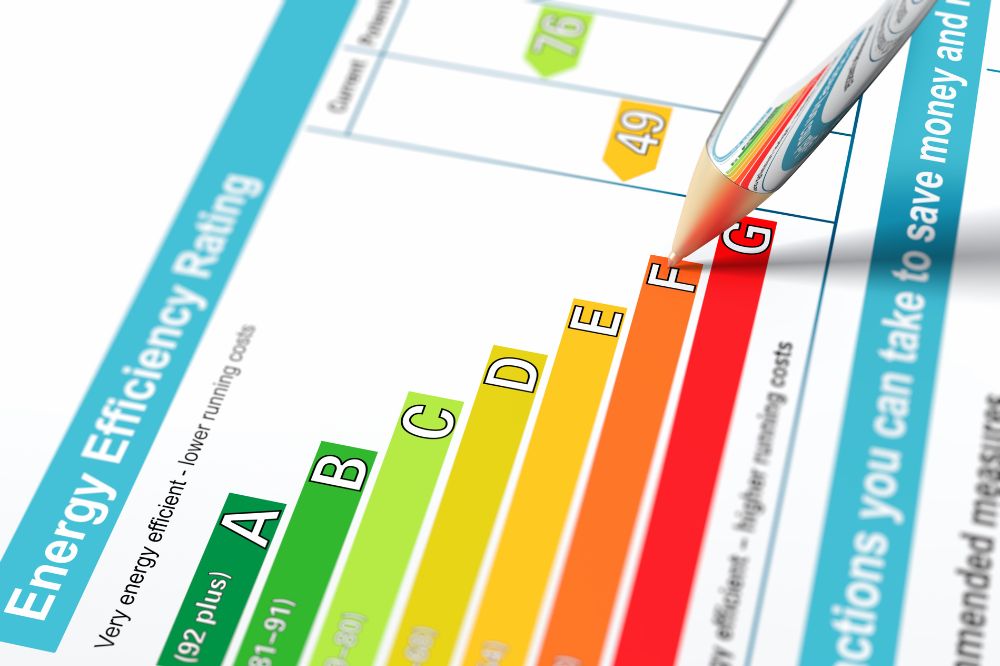Energy Performance Certificates unreliable and desperately need reform – Which?

Energy Performance Certificates (EPCs) are unreliable and in desperate need of reform, consumer champion Which? has warned.
The system was introduced in 2007 to rate the energy efficiency of buildings – using grades from A to G.
Which? carried out a snapshot investigation into EPCs in light of their role in the green transition.
Home-owners look to the rating system as a first step in getting advice on reducing their energy use and switching to low-carbon heating.
Inaccuracies
Access to grant funding or “green” financial products such as loans or mortgages is often contingent on meeting certain EPC-based criteria and higher EPCs allow home-owners to command a higher sales price or attract tenants.
Which? booked EPC assessments on behalf of 12 home-owners across England, Wales and Scotland – living in homes built between 1650 and 1999 ranging from a one-bedroom flat to a five-bedroom detached house – during February and March this year.
The results were riddled with inaccuracies and the advice the home-owners received was often unhelpful, Which? said.
The consumer champion said one home-owner never received their certificate following the survey and, while the fee was refunded, they were left in the dark about their home’s energy efficiency.
Of the remaining 11 participants, Which? said just one was “very satisfied” with their EPC.
Omissions
Meanwhile, eight of the 11 participants told the consumer champion their EPC did not appear to be accurate, with incorrect descriptions of features like windows, roofs and heating systems.
A couple in Aberdeenshire achieved a D rating for energy efficiency for their 1980s four-bedroom semi-detached bungalow, but their EPC report did not mention their solar panels or their wood-burning stove.
Which? said it contacted the assessor, who admitted there were omissions in his notes and offered to supply a new corrected EPC, with an improved B rating for energy efficiency.
In terms of recommendations, one consumer said they felt draught-proofing was overlooked in their EPC report despite their home having an open chimney and front door with single glazing.
Another woman achieved a D rating for energy efficiency for her two-bedroom Victorian terraced house in London.
Her EPC recommended improvements which could have cost her up to £26,700 but would only raise the rating to a C and save her around £920 a year.
Which? is calling for the next government to reform the EPC system to ensure it provides consumers with the information and advice they need.
Other recommendations include making EPCs more interactive, introducing up-to-date costings in EPCs relevant to the type of property, and establishing a database of installers belonging to government-certified schemes.
Which? said the next government should review the auditing of EPCs and the training requirements for domestic energy assessors to ensure they have the skills needed to complete reliable assessments.
Tool
Rocio Concha, Which? director of policy and advocacy, said: “With millions of families worried about high energy bills, and the UK facing a big challenge to transition to low-carbon heating, Energy Performance Certificates could be a helpful tool for consumers looking to save money and improve their home’s efficiency in the future.
“However, our research shows they are in desperate need of reform – with current certificates often inaccurate and only suggesting costly improvements with long payback periods.
“The next government must make Energy Performance Certificates a more reliable and useful tool for householders.”
Support our Nation today
For the price of a cup of coffee a month you can help us create an independent, not-for-profit, national news service for the people of Wales, by the people of Wales.






